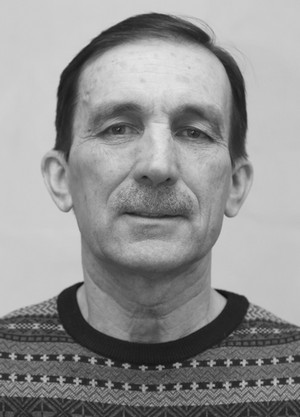Future teachers' physical education background formation issues
Фотографии:
ˑ:
Teoriya i praktika fizicheskoy kultury №11 2016, pp. 9-11
UDC 796.071.4
Associate Professor, PhD V.A. Kuznetsov1
Associate Professor, PhD A.B. Smirnov1
N.I. Kulakova1
O.V. Sesorova1
L.V. Turkina1
1Kozma Minin Nizhny Novgorod State University (Minin University), Nizhny Novgorod
e-mail: vak1401@yandex.ru
The article considers the issues of physical education background of teachers majoring in non-physical-education disciplines, with a special emphasis on the key performance criteria indicative of the teacher’s due competency in the physical education domain. The study presents an algorithm of the physical education teaching process with an emphasis on the core mission of physical education that is not only to develop due physical qualities and entertain, but also support the socializing and personality development progress. In the context of this mission, the physical education activity is considered an important element of the professional physical education system.
The article further demonstrates that the physical education activity of a teacher comprise a socially important vector of the professional activity. As found by analysis of the available literature on the subject, there are quite a few biased and multisided aspects in how the physical education process mission, functions and structure have been presented. Having summarized the available information, the authors come up with the following key fundamentals of the system: classification of the benefits, implementation system, content, concepts, functions, structure and accomplishments. The fundamentals enable the authors to give theoretical and practical definitions of the core mission concept, control concept, and result assessment concept for the non-physical-education teachers’ physical education system.
Based on the study data and analyses, the authors offer the ways and model to optimize the academic physical education process in the non-physical-education system. The key benefit of the newly offered model is its application versatility that allows different physical education tools being used in the process.
Keywords: future teachers’ physical culture, physical education process, physical education competency.
References
- Aleksandrova N.M., Markova S.M. Problemy razvitiya professionalno pedagogicheskogo obrazovaniya [Problems of development of vocational teacher education]. Vestnik Mininskogo universiteta, 2015, no. 1. Available at: http://www.mininuniver.ru/scientific/scientific_activities/vestnik/archive/1-9 (In Russ.)
- Atyashev O.A. Formirovanie professionalnoy gotovnosti budushchego uchitelya k vospitatelnoy rabote sredstvami fizicheskoy kultury: avtoref. dis. dokt. ped. nauk [Formation of professional competency of future teachers to educational work via physical education: doct. diss. abstr. (Hab.)]. Moscow, 1991, 40 p.
- Bauer V.A. Formirovanie interesa i potrebnosti k zanyatiyam fizkul'turoy i sportom u budushchikh uchiteley: avtoref. dis. kand. ped. nauk [Formation of future teachers' interest and need for physical education and sport sessions. PhD diss. abstr.]. Moscow, 1987, 23 p.
- Sogotovskiy A.N. Deyatelnost: teoriya, metodika, problemy [Activity: theory, methodology, problems]. Moscow: Politizdat publ., 1990, 366 p.
- Rybanchuk N.A. Model podgotovki sovremennogo uchitelya v protsesse fizicheskogo vospitaniya v pedagogicheskom vuze nefizkul'turnogo profilya [Modern teacher training model within physical education process in pedagogical university not majoring in sports]. Teoriya i praktika fiz. kultury, 2002, no. 12, pp. 5-7.
- Chichikin V.T. Professionalnaya gotovnost pedagoga [Teacher's professional competency]. N. Novgorod: Kitezh publ., 1998, 102 p.
Received 13.07.2016 г.




 Журнал "THEORY AND PRACTICE
Журнал "THEORY AND PRACTICE